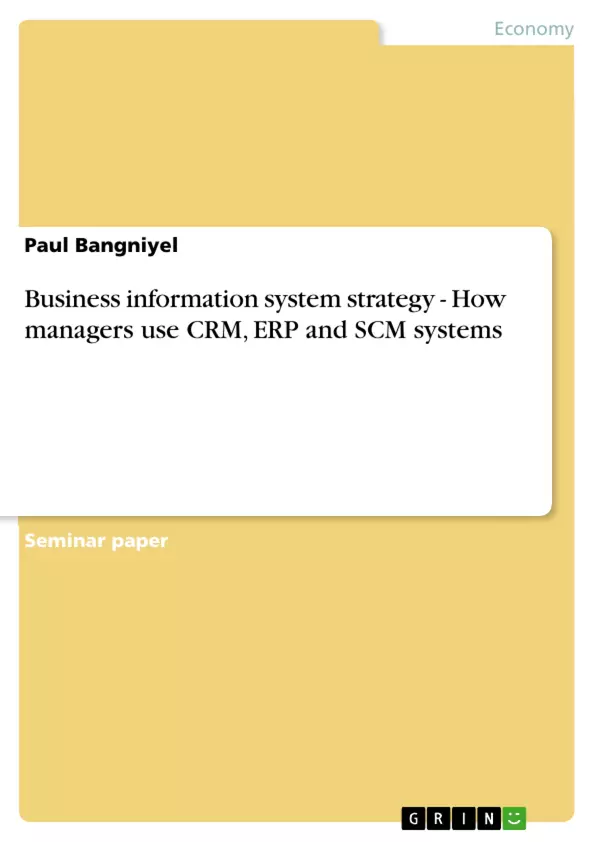Yesterday, businesses were in charge, but thanks to Customer Relationship Management and technology today where customers are now the centre of every company. Customers are free to choose whatever product and that matter very selective in the choice of where to shop. This trend has now made managers in the business environment to undertake strategic thinking seriously than before, where customer’s value was less important. Management Information System is now helping businesses to track the records of Customers as information is now carrying a strategic value. In recent business environment data keeping is paramount with technology infrastructure to help businesses. Customer relationship Management is to give the business and its value customers with the support of information technology an efficient and effective use of their products and services to customers by the use of information technology by the press of a bottom inn the customers own premises to have all information about the product and also to view other product in the company’s profile without any movement. Enterprise Resource Planning is another backbone of businesses which seek to facilitate the efficient use of resources with the organization as a broad spectrum.
ERP is assist the processes of the business Channels from production line, logistics, distribution handling of all financial management issues and even in the human resource issues in the company,. This is an important planning management that information system is now addressing the needs of businesses particularly large companies where there are huge demands of vital information within the shortest possible time frame for decision makers to act. Another important segment that recent businesses cannot over look is the concept of supply chain management. This is one of the top most strategic thinking for every successive business or enterprise as a model use to know how, what and where business products are needed, stock level, finances and even of the farm land where the farmer is supported with the technology to know what taste consumers are looking for or demanding as the channel allows the producer to know when goods should be delivered to avoid businesses over incurring cost of storage and losses on storage.
[...]
Table of Contents
- Introduction
- Discussion
- Sales
- Marketing
- Actualization
- General Analysis
- Conclusion
- References
Objectives and Key Themes
This text aims to provide an overview of how businesses leverage information technology to manage customer relationships, resources, and supply chains. The text examines the strategic significance of Customer Relationship Management (CRM), Enterprise Resource Planning (ERP), and Supply Chain Management (SCM) systems within today's business environment.
- The evolving role of customer relationships and their impact on business strategy
- The importance of information technology for managing customer data and insights
- The implementation and benefits of CRM, ERP, and SCM systems in various departments
- The use of technology to enhance efficiency and effectiveness across business operations
- The potential for e-business and its impact on supply chain management
Chapter Summaries
The introduction discusses the shift in business focus from internal control to customer-centric strategies. It highlights the importance of information systems, particularly CRM, in today's customer-driven market. The introduction also briefly outlines ERP and SCM, emphasizing their roles in resource management and supply chain optimization.
The "Discussion" chapter explores the application of CRM systems in two key departments: sales and marketing. It explains how sales representatives use CRM tools to track customer information, personalize interactions, and improve sales performance. The chapter also highlights the use of CRM for marketing purposes, enabling businesses to gather customer insights, target specific audiences, and tailor marketing campaigns.
The "Actualization" chapter (not included) likely focuses on the practical implementation of CRM, ERP, and SCM systems. It may cover topics like system selection, integration, training, and operational procedures.
The "General Analysis" chapter (not included) likely provides an overarching assessment of the effectiveness and impact of these information systems. It may include case studies, real-world examples, and analysis of industry trends.
Keywords
This text primarily revolves around the concepts of Customer Relationship Management (CRM), Enterprise Resource Planning (ERP), and Supply Chain Management (SCM). It also emphasizes the strategic importance of information technology, customer data, and e-business in modern business operations. Key terms include: information systems, customer insights, sales automation, marketing strategies, resource optimization, supply chain efficiency, and e-commerce.
Frequently Asked Questions
How has Customer Relationship Management (CRM) changed business strategy?
CRM has shifted the focus from businesses being in charge to customers being at the center. It allows managers to track customer records and treat information as a strategic value to improve products and services.
What is the role of Enterprise Resource Planning (ERP) in a company?
ERP acts as the backbone of a business, facilitating the efficient use of resources across the organization, including production, logistics, finance, and human resources.
Why is Supply Chain Management (SCM) considered a strategic model?
SCM is vital for knowing where products are needed, managing stock levels, and reducing storage costs. It connects producers and consumers, ensuring goods are delivered at the right time to avoid losses.
How does information technology benefit sales and marketing?
IT systems like CRM help sales teams track customer interactions and personalize services, while marketing departments use these insights to target specific audiences and tailor campaigns effectively.
What is the impact of e-business on modern supply chains?
E-business allows for faster decision-making and better communication between producers and farmers/suppliers, helping businesses adapt to consumer tastes and demand without physical movement.
- Quote paper
- Paul Bangniyel (Author), 2011, Business information system strategy - How managers use CRM, ERP and SCM systems, Munich, GRIN Verlag, https://www.grin.com/document/190176



